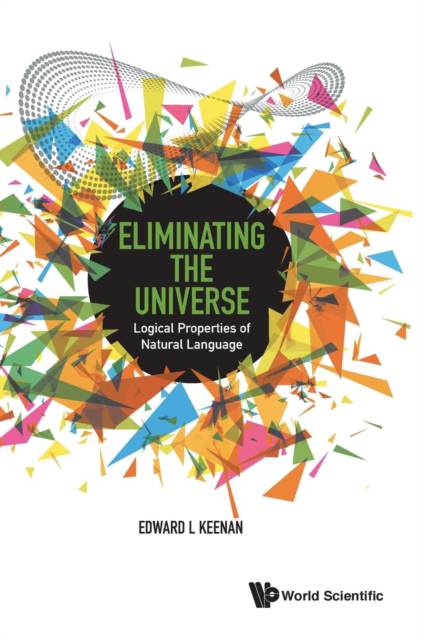
Door een staking bij bpost kan je online bestelling op dit moment iets langer onderweg zijn dan voorzien. Dringend iets nodig? Onze winkels ontvangen jou met open armen!
- Afhalen na 1 uur in een winkel met voorraad
- Gratis thuislevering in België vanaf € 30
- Ruim aanbod met 7 miljoen producten
Door een staking bij bpost kan je online bestelling op dit moment iets langer onderweg zijn dan voorzien. Dringend iets nodig? Onze winkels ontvangen jou met open armen!
- Afhalen na 1 uur in een winkel met voorraad
- Gratis thuislevering in België vanaf € 30
- Ruim aanbod met 7 miljoen producten
Zoeken
€ 134,45
+ 268 punten
Omschrijving
This book synthesizes the author's work (1980s-2015) on the logical expressive power of natural language. It extends the tools and concepts of model theory as used in (higher order) predicate logic to the study of natural language semantics. It focuses on boolean structure, generalized quantification (separated from variable binding), covering some cases of anaphora. Different categories -- predicates, adjective, quantifiers -- are modeled by non-isomorphic boolean lattices.Of empirical linguistic interest is the expressibility of many natural classes of quantifiers defined in terms of their logical (automorphism invariant) properties. Some of these correlate with classes used syntactically in generative grammar. In other cases we find general (possibly universal) constraints on possible quantifier denotations in natural language.Also of novel logical interest are entailment paradigms that depend on relations between pairs or triples of generalized quantifier denoting expressions, ones that are in some cases inherently vague. In addition we note novel binary quantifiers that lie beyond the 'Frege boundary' in that they are provably not identical to any iterated application of unary quantifiers.Of philosophical interest is the existence of models which make the same sentences true as standard models but which lack a universe and hence, seemingly, a notion of 'reference'. Moreover, these models generalize to ones in which we can represent (some) intensional expressions without the use of novel ontological objects, such as 'possible worlds' or 'propositions'.
Specificaties
Betrokkenen
- Auteur(s):
- Uitgeverij:
Inhoud
- Aantal bladzijden:
- 184
- Taal:
- Engels
Eigenschappen
- Productcode (EAN):
- 9789814719834
- Verschijningsdatum:
- 23/08/2018
- Uitvoering:
- Hardcover
- Formaat:
- Genaaid
- Afmetingen:
- 170 mm x 244 mm
- Gewicht:
- 494 g

Alleen bij Standaard Boekhandel
+ 268 punten op je klantenkaart van Standaard Boekhandel
Beoordelingen
We publiceren alleen reviews die voldoen aan de voorwaarden voor reviews. Bekijk onze voorwaarden voor reviews.











